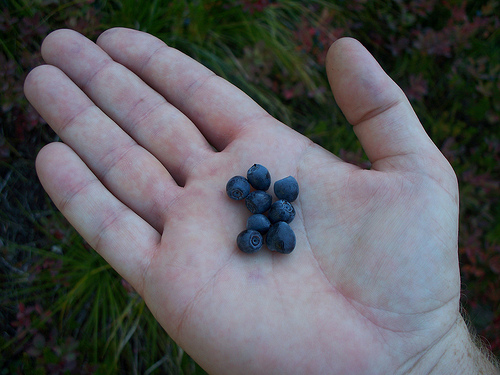Below is a humorous look at some lessons I've learned on and off the trail and other random observations I've made about life in general.
Caution: some of this may piss you off. These observations are not directed at any one person in particular. You may change your opinion of me after reading this. If it really hurts your feelings, well, sorry. Get a backbone.
 The most dangerous animal
The most dangerous animal
Much has been said about the dangers of being in the wild. Wild animal encounters being no small part of that discussion. Some lists on the internet will tell you what some of the more dangerous animals are in the wild and where to find them. Some will say the Australian Box Jellyfish is the most dangerous, as each of its tentacles have enough toxin to kill 60 people. Others will say the lowly mosquito is the most deadly with 2-3 million deaths attributed to it each year. I'm here to tell you these lists, while maybe true, do not necessarily concern us so much as hikers. (Well OK, the mosquito thing is kind of a big deal, might want to wear some bug spray, but that's part of the ten essentials which I'll get to in a bit.).
Entire industries have been born to create the products necessary to protect us from wild animal encounters. Products such as the bear bell to warn the un-suspecting bear or cougar of our presence as we walk through the wilds. Bear spray that can be used to (hopefully) stop a charging bear. Bug spray to keep the mosquitos and other bugs away. Mosquito nets, Snake bite kits, epinephrine in case of bee sting, the list goes on and on. While that is all fine and good, what is not talked about much is that 99 times out of 100, most animals you see are more scared of you than you are of them and will flee the moment they see you. And why is this? It's because the most dangerous animal out there is not really an animal at all, at least not in the literal sense.
What am I talking about? I'm talking about the human being, most notably the one that is reading this sentence right now. Yes I mean you. Yes you there on the computer looking at the screen reading this right now. You are the most dangerous animal in the woods. Dangerous to the animals, dangerous to others, dangerous to yourself.
Straying too close to that cliff edge, not bringing enough food and clothing, thinking you can hike up that long ridge with a just a liter of water, etc, etc. To be less dangerous to yourself, to others, and to the critters is to always carry the Ten Essentials and to understand how and when to use them when needed. Other "essentials" lists will add some extra items to the list but the one thing that I have never seen listed is common sense. If we all used just a little of it, there would be a lot less wilderness emergencies, not to mention the world would be a much nicer place.
Can you bear it? Park visitors are encouraged to wear little bells on their clothes so they make noise when hiking. The bell noise allows bears to hear them coming from a distance and not be startled by a hiker accidentally sneaking up on them. This might cause a bear to charge. Visitors should also carry a pepper spray can just in case a bear is encountered. Spraying the pepper into the air will irritate the bear's sensitive nose and it will run away. It is also a good idea to keep an eye out for fresh bear scat so you have an idea if bears are in the area. People should be able to recognize the difference between black bear and grizzly bear scat. Black bear droppings are smaller and often contain berries, leaves, and possibly bits of fur. Grizzly bear droppings tend to contain small bells and smell of pepper.
 Giving the air-five, or how to confuse (and possibly piss off) a biker but a lot of fun anyways
Giving the air-five, or how to confuse (and possibly piss off) a biker but a lot of fun anyways
Ever driven behind a someone on a motorcycle for a while? If you have, then you will have undoubtedly witnessed what I call the air-five phenomenon. What is the air five you ask? It's sort of a wave that bikers give to each other as they pass one another when coming from different directions. More often than not, instead of an up-high wave, they give a down-low (too slow joe) wave that looks similar to the famed down-low high-five. Since they aren't really close enough to touch one another when giving these down-low, high fives, I just call it the air-five.
Now a lot of (not all) bikers pride themselves on being the dirtiest, smelliest, rottenest, meanest, foulest of the foul on the road. So when I see the air five, I find it to be quite humorous. Not being one to regularly use the derogatory term "that's so gay", I find myself not really knowing what other term to use when I see the air-five. It really is pretty gay. Especially when I see a big sweaty dirt-bag biker do it.
In an attempt to further entertain myself when seeing the air-five occur in front of me, I do the first thing that comes to mind. I roll down my window, hang my arm out and get ready. Not only do I enjoy the humor of seeing the air-five happen in front of me, I also get to participate, or try to anyways. I try to try to get an air-five from the driver's side of my Chevy Malibu, but do I get reciprocal five-age? Nay, only bewildered looks from the bikers that pass. I am so easily amused!
The term air-five is not a new one, but I think in terms of bikers, it may be.
I don't dislike bikers. I don't understand the gravitational pull some feel towards that lifestyle, but I don't begrudge folks for going that route. To each, their own.
How do you tell how happy a biker is? By counting the bugs in their teeth.
Backcountry Horsemen
God bless them. If it wasn't for them, a lot of our trails wouldn't be in as nice of shape as they are. Making sure that popular trails are "horse-able", they do a lot of maintenance and keep them free of down trees. They are also responsible for a lot of the funding the major trails and forest roads receive due to their diligent work with legislation concerning these areas.
Backcountry Horsemen Part 2
Curse them! After your hard hike and in dire need of a cheeseburger, you will undoubtably get stuck behind a large truck and horse trailer doing 10 mph that refuses to use the pull-outs on the forest roads to let you around them. If you know a BCH that drives a truck and horse trailer and they tell you some idiot passed them on an all too narrow dirt road, tell them I said hi and that they might want to get the hell out of the way next time before my cheeseburger gets cold!
Frau Blucher
Are you practicing for ski season?
Still on the topic of backcountry horsemen, I passed a lady on a horse one day at a local trail. During this particular hike, I was using trekking poles. She smiled and said to me, "Oh, you must be practicing for ski season!" Lady you don't want to see me ski!
The agony of defeat
Just some hiker.
I really don't have anything against backcountry horsemen (other than all the horsecrap on the trails I have to step over) so this will be the last I have to say about them.

Being on horseback, you would think the horsemen would be able to go pretty fast on the trail. It's not like they have to walk or anything. I was hiking on a multi-use trail one day near where I live and I stopped to take a break. Some horsemen (horsepeople?) went by but they didn't see me as they passed. I was pretty much finished with my break so I started hiking again. I figured the horsemen would be much faster than me but I was soon upon them. I hiked behind them, not really caring as they weren't slowing me down too much when one of the horsepeople in the lead asked the horseman in the back if they should let me pass. He replied, "No dear, it's just a hiker, he can wait." He gave me a cunning little eff you buddy smile as he looked over his shoulder when he said this. Nice guy.
For the record, I don't dislike BCH. Encounters with them are almost always pleasant.
 Hiking Etiquette
Hiking Etiquette
One of the rules of Hiking Etiquette are to step off the trail when going downhill to let the up hill hiker pass. This rule seems counter-intuitive to me and I can never seem to remember which one yields, the uphiller or downhiller. My rule of thumb is to step off the trail when going either direction unless the hiker coming my way has already stepped off the trail and is waiting for me to pass.
Another rule of hiking etiquette is to "Leave what you find". They say to take only memories and photographs but to leave everything else behind. I take this one step farther and take only memories, photographs and ripe berries. Can't go wrong by taking a few in season berries.